Almost a year ago to the day, eight black female architects gathered in the living room of Neba Sere, an architectural assistant at Penoyre & Prasad, to discuss issues they had encountered during their education and training.

That small group has since grown into an organisation with 250 members that holds regular events and provides a network for black women to share their experiences and seek advice.
Black Females in Architecture (BFA) is one of a number of organisations for women in the property industry to have emerged in recent years. To mark International Women’s Day, Property Week spoke to female network founders and their members about their experiences.
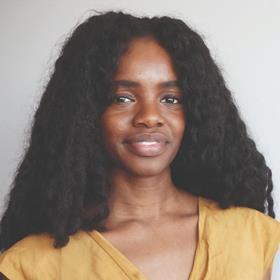
Alisha Morenike Fisher, BFA
In 2018, Alisha Morenike Fisher, Akua Danso, Neba Sere and Selasi Setufe created a WhatsApp group called Black Female Architects because they wanted to “hang out”. Their conversations soon grew too big for the group chat and they held their first event.
In the two years since, the organisation has grown in size and now regularly holds events such as a networking breakfast on International Women’s Day and brunches where members can get advice on building their own business.
For Morenike Fisher, it provides a vital forum. “There are all these issues that are stigmatised,” she says. “We need a space where we can talk about them. There need to be more firms with spaces where women can offload professionally.”
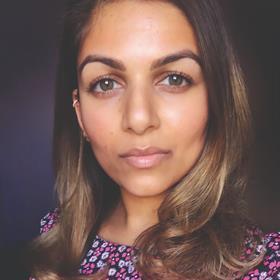
Priya Shah, BAME in Property
Priya Shah’s realisation that BAME (black, Asian and minority ethnic) women needed their own space led her to found BAME in Property. In 2017, she was in a meeting with a client and when she told them she was going backpacking in South Africa and Zimbabwe, they responded: “But you’re a bit of an Indian princess.”
No one in the room spoke up and it made Shah feel “undermined and typecast”. She also thought the comment highlighted a deeper issue.
Shah points out that 14% of the UK population is classed as BAME, compared with 1.2% of those working in the built environment sector, according to a joint report from RICS and EY in 2016. The aim of BAME in Property, she says, is to make the industry more diverse and inclusive.
“A lot of the rhetoric so far has been about women and gender, and specifically progressing the causes of white women. We have to look at more than gender. Black people face a lot of prejudice – and black women probably the most of all,” says Shah.
BAME in Property now has 600 members, thousands of followers on social media and 16 partners, including the British Property Federation, the Royal Town Planning Institute and Women in Planning. The organisation is open to all BAME industry professionals and Shah says it is also there “to support BAME women in their careers in property”.
“It is important to understand that, more often than not, BAME women face different issues or barriers in comparison to white women,” says Shah. Support can include acknowledging different cultural contexts or ensuring that social events do not centre on drinking alcohol, she suggests.
“BAME women are outnumbered, so they might feel they cannot raise issues in boardrooms. They are rarely seen or heard in senior positions. Visibility is really important.”
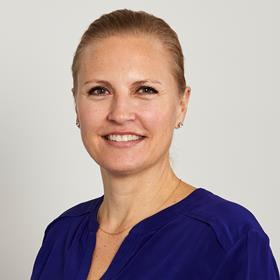
Kaela Fenn-Smith, Real Estate Balance
Kaela Fenn- Smith, managing director of Real Estate Balance, also emphasises the importance of supporting the progression of more women into senior roles. The organisation’s board is a mix of both men and women and it is working towards better representation of women at higher levels.
“When young women come into the industry, they are just not seeing themselves at the leadership level,” says Fenn-Smith. “What really creates change is an inclusive culture. The conversation becomes much deeper when we talk about being a Muslim woman or a gay woman.”
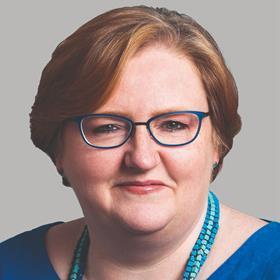
Brie Stevens-Hoare, Freehold
Conversations about being a gay woman in property are on the rise, thanks in part to LGBT network Freehold. Brie Stevens-Hoare QC, a barrister at law firm Hardwicke, is a founding member and has watched as gay women in the industry carve out their own space.
On the third or fourth time that Stevens-Hoare went to a Freehold evening event, her partner said “you’ll be home late then”. She realised that she stayed later than at other work events because she “enjoyed it so much more”.
Stevens-Hoare is ‘out’ in her workplace, but when she meets a client she has to decide whether to ‘edit’ her conversation to conceal her sexuality. With Freehold, “I didn’t have to take that 30 seconds” to decide, she explains.
But it is still challenging for gay women to come out in the industry. “People ask ‘where are the lesbians?’ You do not see many, partly because there are not [many] but also because they are already dealing with being visibly female,” says Stevens-Hoare. “It is whether you want to add that extra layer.”
Having the word ‘women’ in the name of an event can boost attendance, according to Stevens-Hoare. But she adds that it is important to make all events inclusive and to connect networks.
“For me, the answer lies in intersectionality and allies. If you start putting everyone together who is ‘other’ in some way, that is a very big cohort of people.”
She says she very rarely ‘edits’ out her sexuality in conversation now and does not feel held back in her career. But when she started out in the mid-1980s, she had work withdrawn when clients realised she was female.
“I feel a huge responsibility to use my seniority to push the sector, so it works for everyone rather than expecting women to fit into a tradition,” she adds.
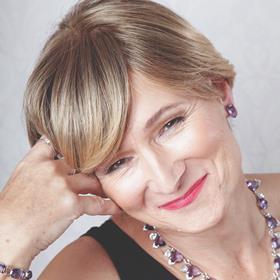
Antonia Belcher, MHBC Cumming
When Antonia Belcher started her own consulting business, her modus operandi was to create a more inclusive company. At her previous employer, she was already a partner when she came out about her transition in 2005. At the time, she was one of seven male partners and was worried they would “kick [her] out” because she had heard them imply that there would never be a female partner in the practice.
“I joined the firm from school and think it would be difficult for a woman to have the same journey,” she says. “If there was a woman tracking me, she would have struggled to do the same.”
When she did eventually tell the partners, they kept her on the board out of necessity rather than acceptance. “I made too much money and would have damaged the partnership if I was kicked out. They did not say they supported me or understood,” Belcher says.
She decided to start her own company and planned to be a “one-woman show”. As more people found out, 19 people from the company approached her and said they wanted to join. “I created a firm of 20 overnight.”
Since it was founded in 2007, MHBC Cumming has gone from strength to strength. It did not lose any clients during the property crash, according to Belcher, and has since been bought by one of the largest project management cost consultancy businesses in the US.
Inclusiveness was central to the company’s success. “It was part of my mantra. I’ve tried to make it as inclusive as I can,” she says.
Belcher’s is a success story. But a lot more needs to change until women are visible at the top. For now, they are creating their own platforms in order to be heard.






























No comments yet